

Dr. Sarah Blanton is Professor of Rehabilitation Medicine at Emory University School of Medicine, Division of Physical Therapy. She graduated from the University of Virginia in 1987 with a BA degree in biology, from Emory University in 1992 with her masters in physical therapy and received her clinical doctorate in physical therapy in 2003. After nine years working in neurologic rehabilitation at Emory Center for Rehabilitation Medicine, she served as project coordinator for several research studies, including two multi-site, NIH-funded national clinical trials. In 2006, Dr. Blanton joined the faculty of the Emory Doctor of Physical Therapy program and her teaching has included geriatrics, mental health, cultural diversity and neurorehabilitation. Dr. Blanton’s current research focus includes stroke survivor and family quality of life, including depression, fatigue, caregiver/family functioning and post-stroke education. The long-term goals of her research efforts are to develop methods to support family focused rehabilitation approaches that facilitate the active integration of the caregiver throughout physical therapy practice.Dr. Blanton’s interest in the Journal of Humanities in Rehabilitation stems from her ongoing exploration of the intersections of creativity and spirituality to gain insight into the human experience of suffering, joy and mystery. In her teaching, she has found the use of narrative to be an exceptionally powerful tool to foster reflection and personal insight for both students and patients. In her research, she is incorporating multi-media formats to develop family education interventions in the home environment. A photographer since childhood, she has enjoyed sharing her artwork through exhibits at Emory University, speaking with chaplaincy students on “Reflections of Art and Spirituality in Appalachia” and as a guest contributor to the Public Radio show, On Being.
Dr. Blanton is the director of the DISCOvER lab (Digital Scholarship Enhancing Rehabilitation), exploring various ways digital scholarship can enhance rehabilitation research, education and clinical practice. In 2018, she was awarded the American Physical Therapy Association Societal Impact Award and the Emory University Creativity and Arts award for healthcare faculty.
Website Link (Official Bio): https://www.emorydpt.org/sarah-blanton-pt-dpt-ncs-2/
Website Link (Emory University, Division of Physical Therapy): https://www.emorydpt.org/
DISCOvER lab https://scholarblogs.emory.edu/blantonlab/

Dr. Bruce Greenfield is a Professor in the Division of Physical Therapy and the School of Medicine and Senior Fellow in the Center for Ethics at Emory University. Dr. Greenfield is a well-known physical therapy educator and qualitative researcher. He serves on the APTA Ethics and Judicial Committee, and on the editorial boards of the Journal of Physical Therapy Education and the Journal of Orthopedic and Sports Physical Therapy. At Emory, Dr. Greenfield is a member of the Emory University Hospital Ethics Committee. For many years, Dr. Greenfield was an orthopedic clinical specialist and edited two text books on the rehabilitation of the knee and shoulder published by F.A. Davis. His current areas of research are exploring the use of narrative and reflection in clinical practice, and exploring ethical reasoning and ethical issues in clinical practice. His interest in the Journal of Humanities in Rehabilitation stems from his passion to incorporate the use of narrative in his teaching and to increase awareness of the need for the humanities in the study of ethics in the PT profession.
Website Link (Official Bio): https://www.emorydpt.org/bruce-howard-greenfield-ph-d/
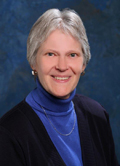
Dr. Jensen is Dean of the Graduate School and College of Professional Studies, Vice Provost for Learning and Assessment, Professor of Physical Therapy, and Faculty Associate, Center for Health Policy and Ethics, Creighton University. Dr. Jensen is a leader known nationally and internationally for her scholarly contributions related to expert practice, clinical reasoning, professional ethics, and interprofessional education. Dr. Jensen has served on several editorial boards and is currently deputy editor for Physiotherapy Research International, Associate Editor for Physiotherapy Theory and Practice and on the Editorial Board of Qualitative Health Research. Dr Jensen has coauthored 10 books, most recently the third edition of Handbook of and Learning for Physical Therapists; Realizing Exemplary Practice-based Education; Leadership in Interprofessional Health Education and Practice; Expertise in Physical Therapy Practice (2nd edition), and Educating for Moral Action: A Sourcebook in Health and Rehabilitation Ethics. She serves as a member of the Board of Directors for the American Interprofessional Health Collaborative. She is currently leading a national study of excellence and innovation in physical therapist education funded by the American Physical Therapy Association. Dr. Jensen received her PhD in educational evaluation with a minor in sociology from Stanford University. She holds a master’s degree in physical therapy from Stanford University and a bachelor’s degree in education from the University of Minnesota. Dr. Jensen is a leader known nationally and internationally for her scholarly contributions related to expert practice, clinical reasoning, professional ethics, and interprofessional education. As a qualitative researcher, she brings to the Journal of Humanities in Rehabilitation a passionate commitment to uncovering the essential human (contextual) elements of patient care and exploring ways to prepare mindful practitioners.
Website Link (Official Bio): https://gradschool.creighton.edu/spotlight/gail-m-jensen-pt-phd-fapta
Website Link (Creighton University, Graduate School): https://gradschool.creighton.edu/
Website Link (Creighton University, College of Professional Studies): https://adultdegrees.creighton.edu/

Dr. Zoher Kapasi is the Dean of College of Health Professions at the Medical University of South Carolina in Charleston, South Carolina. Before becoming the dean, Dr. Kapasi served as the Director and Professor in the Division of Physical Therapy and Vice Chair of Education of the Department of Rehabilitation Medicine at Emory University School of Medicine in Atlanta, Georgia. He received his Bachelor’s and Master’s Degrees in Physical Therapy from the University of Bombay, India, Ph.D. in Anatomy/Immunobiology from Medical College of Virginia, Virginia Commonwealth University, Richmond, Virginia and Executive MBA from the Goizueta Business School, Emory University, Atlanta. He did post-doctoral work in Immunology at Basel Institute for Immunology, Switzerland and Medical College of Virginia. After graduation, his research focused on age-related changes in immune function and the effects of exercise and nutrition on the immune system. Currently, Dr. Kapasi serves on the editorial board of the Journal of Humanities in Rehabilitation. Dr. Kapasi has taught human anatomy, advanced human anatomy, and business management for the physical therapist in the physical therapy program. In 2014, Emory University School of Medicine conferred the Dean’s Teaching Award to Dr. Kapasi. In 2017, Emory University conferred the Emory Williams Distinguished Teaching Award and the Atlanta Business Chronicle awarded the Health Care Heroes Allied Health Professional Award. An active member of the American Physical Therapy Association (APTA), Dr. Kapasi has served as the secretary of American Council of Academic Physical Therapy and currently chairs the Education Leadership Partnership of the American Physical Therapy Association.
Website Link (Official Bio): http://academicdepartments.musc.edu/chp/directory/faculty/kapasi.htm
Website Link (Medical University, College of Health Professions): http://academicdepartments.musc.edu/chp/
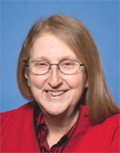
Nancy Kirsch received her PT degree from Temple University, her Master’s degree in Health Education from Montclair University, her PhD in health sciences concentration in ethics from Rutgers University (formally UMDNJ) and a Doctor of Physical Therapy from Massachusetts Institute of Health Professions (MGH). In addition, she has a certificate in Health Care Administration from Seton Hall University and a certificate in Ethics from the Kennedy Institute of Bioethics at Georgetown University.
She has practiced in a variety of settings including inpatient rehabilitation, acute care, long term care, and home care. She owned a private practice for twenty years. Currently, she is the Director of the Doctor of Physical Therapy Program at Rutgers, The State University of New Jersey.
Nancy has been a member of the New Jersey Board of Physical Therapy Examiners since 1990(over the course of two different appointments) and was chairperson of the board for 12 years.
Nancy has been involved with the Federation of State Boards of Physical Therapy in the following capacities. She served two terms on the Finance committee and served on
several task forces. Currently, she is Board liaison to the Licensure Compact Task Force. She was elected to the FSBPT Board of Directors in 2009 and currently serves as Vice President.
Nancy has been active in the American Physical Therapy Association since she was a student and served a five year term on the APTA Ethics and Judicial Committee, including a term as chairperson. She is also a past chair of the APTA Reference Committee. Nancy served the New Jersey Chapter as Secretary and President and as chief delegate to the House of Delegates. She recently served the national association as a member of the ethics document revision task force, and the Standards of Practice Task Force.
Nancy’s interest in the Journal of Humanities in Rehabilitation developed from her work with students and clinicians in ethical decision making and the exploration of the factors that help to develop mature ethical reasoning in health care providers. She is particularly interested in how practicing clinicians can remediate unethical behaviors and develop skills for ethical decision making that provides practical guidance using reflection and introspection.
Website Like (Official Bio): https://apps.shp.rutgers.edu/projects/facultyLocator/profile1.cfm?RUID=kirschna
Website Link (Rutgers University, School of Health Professions): https://shp.rutgers.edu/
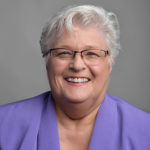
Laura Lee (Dolly) Swisher, PT, PhD, MDiv, FNAP, FAPTA is Professor and Director of the School of Physical Therapy and Rehabilitation Sciences at the University of South Florida, and also serves as Associate Dean in the Morsani College of Medicine. Dr. Swisher received a BS from Wilson College, and is a 1986 physical therapy graduate of the University of Tennessee, Memphis. She received the M.Div. from Andover Newton Theological School and a doctoral degree in public administration from Tennessee State University. She is the author of publications on professionalism, ethics and interprofessional education, and has presented at numerous state, national, and international meetings on physical therapy ethics, professionalism and interprofessional education. Dr. Swisher is past Chair of the Commission on Accreditation for Physical Therapy Education, former chair of the APTA Ethics and Judicial Committee, served as Co-Chair of the Task Force to Revise the Core Ethics Documents. Dr. Swisher serves on the Editorial Board of the Journal of Physical Therapy Education and was a founding member of the Editorial Board of the Journal of Humanities in Rehabilitation. She was named a Fellow of the National Academy of Practice in 2014, is the recipient of the APTA’s Lucy Blair Service Award, and a Catherine Worthingham Fellow of the APTA.
Website Link (Official Bio): https://health.usf.edu/medicine/dpt/faculty/9971/Laura-Swisher.aspx
Website Link (USF, School of Physical Therapy & Rehabilitation Sciences): https://health.usf.edu/medicine/dpt

Dr. Carey received BS and MS degrees in Physical Therapy and a PhD in Physical Education/Kinesiology all from the University of Minnesota. He currently is a Professor Emeritus in the Program in Physical Therapy at the University of Minnesota. He has held previous faculty positions in Physical Therapy at the University of Puget Sound (1978-79), College of St. Scholastica (1979-80), University of Minnesota (1980-88 and 1994-present), and Mayo School of Health-Related Sciences (1988-1994). He teaches anatomy and principles of motor recovery from stroke. His research focuses on transcranial magnetic stimulation to promote recovery of hand function following stroke. He is a member of the University of Minnesota’s Academy of Distinguished Teachers and the Medical School’s Academy of Medical Educators, as well as being a Catherine Worthingham Fellow in the American Physical Therapy Association. His interest in the Journal of Humanities in Rehabilitation stems from working with people with stroke and his prior volunteering at the Center for Victims of Torture in Minneapolis, Minnesota.
Website Link (Official Bio): https://www.rehabmedicine.umn.edu/bio/division-in-physical-therapy/james-carey
Website Link (University of Minnesota, Department of Rehabilitation Medicine): https://www.rehabmedicine.umn.edu/

Historical Perspectives in Art Section Editor: Dr. Siobhan M. Conaty is an Associate Professor of Art History in the Department of Fine Arts and Art History, La Salle University, Philadelphia. Dr. Conaty’s area of research is focused primarily in the modern era, with topics spanning from Art and Medicine, the Irish Renaissance, and gender issues in twentieth century European and American art. Her work has been published in the Woman’s Art Journal and The International Journal of the Humanities, and in a collection of essays entitled American Women Artists: Gender, Culture, and Politics, issued by Ashgate Publishing. Her research has been supported by an NEH Summer Fellowship, the J. Paul Getty Research Institute, and the American Academy in Rome. Dr. Conaty is a member of the Steering Committee on the Section on Medicine and the Arts, at the College of Physicians of Philadelphia. Dr. Conaty has recently been selected as a Keinle Scholar in Medical Humanities from the Penn State School of Medicine.
Website Link (Official Bio): https://www.lasalle.edu/art-history/faculty-profile/?fid=164

Poetry Section Editor: Since receiving her PhD in comparative literature from Princeton, Marilyn McEntyre has taught many classes that connect humanities and sciences. She has developed courses in literature and medicine that equip premed students with a repertoire of questions about how medical practice is informed by cultural values and myths and is shaped by narrative and poetic devices. She is Adjunct Professor of Medical Humanities at the UCB-UCSF Joint Medical Program. She also offers occasional CME workshops for medical professionals and volunteers with Hospice. Her recent book Patient Poets: Illness from Inside Out (UC Medical Humanities Press) reflects on how and why people with chronic or terminal illness write poetry and what caregivers can learn from their poems.
Website Link (Official Bio): http://marilynmcentyre.com/

Critical Research and Perspectives Section Co-Editor: Jenny Setchell, PhD, BScPT, Grad Cert (Clin PT), is a Senior Research Fellow (NHMRC) at the School of Health and Rehabilitation Sciences, The University of Queensland (Australia); and Adjunct Scientist at the Bloorview Research Institute. Her research interests include critical perspectives on rehabilitation, and on physiotherapy specifically. She is particularly interested in post-modern and new-materialist theories. Dr. Setchell has been awarded 10+ fellowships and awards for her work and has presented and published extensively across disciplines. She has 20 years of diverse clinical physiotherapy experience in Australia and internationally, primarily in the musculoskeletal and sports sub-disciplines. Dr. Setchell is co-founder of the executive committee of the Critical Physiotherapy Network, an international network of more than 700 physiotherapists across 30+ countries working toward more critical, sociopolitical understandings of rehabilitation. She co-edited the first collection of critical physiotherapy work in book form, Manipulating Practices: A Critical Physiotherapy Reader. Dr. Setchell has also been an acrobat and a human rights worker.
Website Link (Official Bio): http://researchers.uq.edu.au/researcher/13932
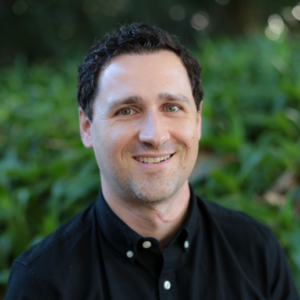
Critical Research and Perspectives Section Co-Editor: Tim Barlott, PhD, MSc, Grad Cert (Community-Based Participatory Research) BScOT, is an Assistant Professor in the Department of Occupational Therapy at the University of Alberta and Co-Director of the SocioHealthLab at The University of Queensland (UQ), Australia. Tim’s research is at the interface of health service delivery and the sociology of health, interrogating the socio-political aspects of everyday life and pursuing affirmative/transformative possibilities. In particular, Tim is interested in allyship and the value of freely-given relationships in community mental health, considered through post-modern and new materialist theoretical perspectives. Using community-based approaches, Tim’s research is built on collaborative relationships with community partners and the co-construction of research processes. Tim’s research is published across sociology, rehabilitation, occupational science, occupational therapy, philosophy, and qualitative methods. Tim has over 15 years of experience as a community practitioner (occupational therapist, addictions counsellor, and youth worker), educator, and participatory researcher in Canada, Australia, and internationally.
Website Link:

Dr Nathalia Costa is and Senior Research Fellow at the University of Queensland’s cLinical TRials cApability (ULTRA) team, where she draws from a range of qualitative methodologies and collaborative approaches to enhance clinical trials, making them more inclusive, nuanced and relevant for real-world contexts. She has held previous positions as a Post-doctoral Research Fellow in Public Health and a Lecturer in Physiotherapy at the University of Sydney, where she embedded critical reflexivity in the physiotherapy program. Her publications (45+) and research interests span a wide range of areas, including musculoskeletal health, policy, sociology, physiotherapy education, interprofessional practice and culturally responsive care. Her involvement in the Journal of Humanities and Rehabilitation stems from her passion for establishing links between humanities and health. She advocates for critical reflexivity and problem-questioning in research, education and practice to make them more just. Nathalia also serves as an Associate Editor for Qualitative Health Research.
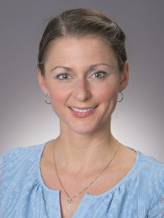
Narrative Section editor: Sarah Caston, PT, DPT, NCS, GCS is an assistant professor and assistant director of clinical education at Emory University’s Doctor of Physical Therapy Program. Dr. Caston is an alumnus of Emory University’s DPT Program, and received her bachelor’s degree in Rehabilitation Science from the University of Pittsburgh. She serves on the American Council of Academic Physical Therapy’s Consortium for the Humanities, Ethics and Professionalism, and chairs its Diversity, Equity, and Inclusion Committee.
As a clinical educator, Dr. Caston weaves a humanities focus and narrative reflections into her teaching of geriatric and neurologic rehabilitation. She has a deep interest in helping students explore their perspectives, and challenge biases, through the incorporation of narrative reflections and humanities-based creative work. In a course co-developed with colleague Dr. Sarah Blanton, Beyond the Diagnosis: Psychosocial Topics in Rehab Through the Lens of the Humanities, Dr. Caston promotes self-exploration and professional formation utilizing narrative and engagement in the humanities. She co-directs Emory DPT’s Learning Community Program, which promotes student-faculty connections, and directs research on practical methods for improving student well-being.
Dr. Caston’s scholarly interests include the intersection of the lived experience of individuals with rehabilitation education and practice, ethics in rehabilitation, and DPT student well-being. She is passionate about social justice, and promotes humanities practices and student self-reflection around the lived experiences of individuals in marginalized populations.
Website Link (Official Bio): https://www.emorydpt.org/sarah-caston-pt-dpt/

Stefanie Johnson is an assistant professor of English in the Department of Health Humanities and Social Sciences at AdventHealth University. She teaches English Composition, Elements of Healthcare Communication, Narrative in Healthcare, and directs the University Writing Center. She earned her M.A. In Rhetoric and Composition from the University of Central Florida and her PhD in Composition and Applied Linguistics from Indiana University of Pennsylvania. Her research focuses on professional identity formation and narrative practice, particularly in the contexts of occupational and physical therapy. She has most recently presented her work at the National Conference on College Composition and Communication, the Health Humanities Consortium Conference, and the International Writing Center Association’s annual conference. She also plays the oboe in the AdventHealth Orchestra, which is composed entirely of clinicians, staff, and faculty who work in a range of healthcare settings.
Website Link (Official Bio):Stefanie Johnson, PhD | Assistant Professor of English | AdventHealth

Associate Professor of Communication Sciences & Disorders, Georgia State University Dr. Laures-Gore graduated from Iowa State University with a Bachelor’s of Science in Speech Communication followed by a Master’s of Health Science in Communication Disorders at the University of Missouri-Columbia. She practiced as a full-time speech-language pathologist in rehabilitation environments for five years before pursuing doctoral training. She received her PhD in Communicative Disorders from the University of Wisconsin-Madison in 2001. She joined the faculty at Georgia State University after obtaining her PhD and is currently an Associate Professor. Dr. Laures-Gore is also the Director of the Aphasia and Motor Speech Disorders Research Lab at Georgia State University. She has numerous publications and presentations in the area of adult neurogenic communication disorders and has been the primary investigator of multiple grants.
Website Link (Official Bio): https://gerontology.gsu.edu/profile/jacqueline-laures-gore/
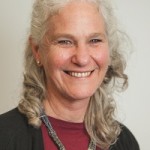
Professor Leigh Hale is the incoming Dean of the School of Physiotherapy / Centre for Health, Activity, and Rehabilitation Research at the University of Otago, New Zealand and the Editor of the New Zealand Journal of Physiotherapy. She graduated as a physiotherapist from the University of Cape Town (South Africa) and went on to attain her MSc (Neurorehabilitation) and PhD from the University of the Witwatersrand (Wits; South Africa). Professor Hale worked as clinical physiotherapist in all areas of physiotherapy before pursuing an academic career. After teaching neurorehabilitation at the Department of Physiotherapy at Wits for ten years, she moved to the University of Otago in 2000. Professor Hale primarily researches in the area of community-based physiotherapeutic rehabilitation for people living with disability and with neurological conditions, such as stroke, multiple sclerosis, and Parkinson’s disease. Her research uses both quantitative and qualitative methodologies and focusses on how physiotherapists can enable people to optimally live healthy and engaging lives. Of importance is ensuring that physiotherapy interventions are delivered in a cost-effective, acceptable and culturally-safe manner so that they are accessible for all. Professor Hale is very excited about the Journal of Humanities in Rehabilitation as she considers it to be an innovative and appealing way of disseminating rehabilitation research findings that does not fall within the mainstream quantitative paradigm.
Website Link (Official Bio): https://blogs.otago.ac.nz/dismatters/about/leigh-a-hale-phd-fnzcp/
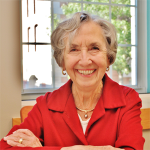
Professor Emerita, MGH Institute of Health Professions
Senior Research Professor, MGH Nursing Research Center
Dr. Purtilo is Professor Emerita in Interprofessional Studies at the Massachusetts General Hospital Institute of Health Professions where she has served in several capacities, the most recent being four years as the Director of the Ethics Initiative. In 2007-2008 she spent one year as a Donoghue Endowed Visiting Professor at the Institution for Social and Policy Studies, Interdisciplinary Center for Bioethics at Yale University. She is a Senior Research Fellow, Institute for Patient Care, Yvonne L Munn Center for Nursing Research, Massachusetts General Hospital. Dr. Purtilo holds five honorary degrees for her work in ethics. In 1991 she received the Distinguished Alumni Award from Harvard Divinity School. In 1983 she was awarded the Nellie Westerman Prize by the American Federation for Clinical Research for her article predicting major ethical and social issues that the (then) new disease called AIDS would create. She is a Catherine Worthingham Fellow and McMillan Scholar of the American Physical Therapy Association. She has been an awardee of two National Endowment for the Humanities Senior Scholars summer institute awards and was a recipient of two Greenwall Foundation grants to study moral courage among South African professionals during the Apartheid years and for an international initiative on ethical foundations of palliative care in Alzheimer Disease. Dr. Purtilo is the author of six books and more than 100 articles. Among her books are Health Professional-Patient Interaction (6th to 8th eds co-authored with Amy Haddad) and Ethical Dimensions in the Health Professions (5th and 6th eds (in preparation) co-authored with Regina Doherty). She is co-editor (with Gail Jensen and Charlotte Royeen) of Educating for Moral Action: A Sourcebook in Health and Rehabilitation Ethics and co-editor (with Henk ten Have) of Ethical Foundations of Palliative Care for Alzheimer Disease. She served as an area editor for the Encyclopedia of Bioethics, rev. ed. Dr. Purtilo’s primary research interests include rehabilitation ethics; interprofessional health care teams; and ethical issues in health care systems reform. In recent years her focus has turned to characteristics that support humane practices such as moral courage and the dynamics of caring relationships.
Website Link (Official Bio): https://www.mghihp.edu/ruth-b-purtilo-pt-phd-fapta

Rita Charon is a general internist and literary scholar at Columbia University who originated the field of narrative medicine. She is founder and Executive Director of the Program in Narrative Medicine at Columbia. She completed the MD at Harvard in 1978 and the Ph.D. in English at Columbia in 1999, concentrating on the works of Henry James. Her research focuses on the consequences of narrative medicine practice, reflective clinical practice, and health care team effectiveness. At Columbia, she is Professor of Medicine at Columbia University Medical Center, Director of the Narrative and Social Medicine Scholarly Concentration Track, Director of Faculty Development for the Division of General Medicine, and Director of the Columbia/Macy Interprofessional Education Project. She has served as Visiting Professor at many medical schools and universities in the US and abroad, teaching narrative medicine theory and practice. She has received a Rockefeller Foundation Bellagio residency, a Guggenheim Fellowship, and research funding from the NIH, the NEH, the VA, the Josiah Macyk Jr. Foundation, and several additional private foundations. She served as Co-Editor-in-Chief of Literature and Medicine from 2000 to 2007. Dr. Rita Charon was selected by the National Endowment for the Humanities (NEH) to deliver the 2018 Jefferson Lecture in the Humanities on October 15, 2018 in Washington, D.C. In November 2018, the International Society for the Study of Narrative awarded the 2017 Perkins Prize to The Principles and Practice of Narrative Medicine, co-authored by Rita Charon, Sayantani DasGupta, Nellie Hermann, Craig Irvine, Eric R. Marcus, Edgar Rivera Colon, Danielle Spencer, and Maura Spiegel, and published by Oxford University Press. Citations from this book will be read during the Awards Luncheon at the 2019 Narrative Conference in Pamplona. She lectures widely on narrative medicine and is published in such journals of medicine and literary studies as The New England Journal of Medicine, Lancet, JAMA, Annals of Internal Medicine, Narrative, Henry James Review, and Literature and Medicine. She is the author of Narrative Medicine: Honoring the Stories of Illness (Oxford University Press, 2006) and co-editor of Stories Matter: The Role of Narrative in Medical Ethics (Routledge, 2002) and Psychoanalysis and Narrative Medicine (SUNY Press, 2008). Principles and Practice of Narrative Medicine, a co-authored textbook of Narrative Medicine, is in preparation for Oxford University Press.
Website Link (Official Bio): http://sps.columbia.edu/narrative-medicine/faculty/rita-charon

Natasha Trethewey served two terms as the 19th Poet Laureate of the United States (2012-2014). She is the author of four collections of poetry, Domestic Work (2000), Bellocq’s Ophelia (2002), Native Guard (2006)—for which she was awarded the 2007 Pulitzer Prize—and, most recently, Thrall (2012). Her book of non-fiction, Beyond Katrina: A Meditation on the Mississippi Gulf Coast, appeared in 2010. She is the recipient of fellowships from the Guggenheim Foundation, the National Endowment for the Arts, the Rockefeller Foundation, the Beinecke Library at Yale, and the Radcliffe Institute for Advanced Study at Harvard. A fellow of the American Academy of Arts and Sciences, she is Robert W. Woodruff Professor of English and Creative Writing at Emory University.
Website Link (Official Bio): https://www.english.northwestern.edu/people/faculty/trethewey-natasha.html

Dom Kelly is the Co-Founder, President & CEO of New Disabled South, a 501(c)(3) nonprofit organization, and New Disabled South Rising, its 501(c)(4) arm. He has been organizing in the South since 2009, committed to building a progressive future for disabled people in his region. His previous roles as a senior advisor and founding staff of Stacey Abrams’ gubernatorial campaign, and as a lead fundraiser and advisor for her voting rights organization Fair Fight Action, both led him to make his vision for New Disabled South a reality.
Dom is one of a set of triplets born with Cerebral Palsy and has been a disability advocate since he was four years old. Starting when he was a young teenager, Dom and his brothers played around the world with their rock band A Fragile Tomorrow, touring and collaborating with artists like Indigo Girls, Joan Baez, Toad the Wet Sprocket, The Bangles and more and releasing 6 records over 15+ years.
He received a Master of Science in Nonprofit Leadership degree from the University of Pennsylvania’s School of Social Policy and Practice where he also received the Excellence in Social Impact award. Additionally, he holds a bachelor’s degree in music production, a master’s degree in journalism, an executive certificate in social impact strategy, and a graduate certificate in interdisciplinary disability studies. Dom is a part of the 2025 global cohort of Atlantic Fellows for Health Equity, was chosen as a 2024 Rockwood National Leading From the Inside Out Yearlong Fellow, and was one of ten winners of The J.M. Kaplan Fund’s 2023 Innovation Prize. He was a 2021 New Leaders Council fellow and currently serves as Chair for the board of The Kelsey. Dom lives in Atlanta, Georgia with his wife Catie, their daughter Mahalia, and their dog Vivi.

Therese (Tess) Jones is Associate Director of the Center for Bioethics and Humanities and Director of the Arts and Humanities in Healthcare Program at the University of Colorado Anschutz Medical Campus. She is an Associate Professor in the Department of Medicine. Jones is the editor of the Journal of Medical Humanities and lead editor for the Health Humanities Reader, Rutgers University Press (2014), the first major text in the field of health humanities. She teaches health humanities and disability studies in the Schools of Medicine and Pharmacy and the Physical Therapy and Physician Assistants Programs and developed the undergraduate Health Humanities Minor for the University of Colorado Denver. Dr. Jones is a co-chair and founding steering committee member of the Health Humanities Consortium and recipient of the University of Colorado Thomas Jefferson Award for “being an international trailblazer for the discipline of health humanities.”
Website Link (Official Bio): http://www.ucdenver.edu/academics/colleges/medicalschool/centers/BioethicsHumanities/faculty/Pages/Tess-Jones,-PhD.aspx

Deborah Bowman is Professor of Bioethics & Clinical Ethics and Deputy Principal (Institutional Affairs) at St. George’s, University of London. Her background and qualifications are in philosophy, law and education. Professor Bowman’s academic interests concern emotion in ethical decision-making, moral distress, public involvement in ethical debate, theatre and medicine, and therapeutic relationships. Prof. Bowman has published extensively in a wide range of titles and she has participated in many international projects in the fields of the health humanities and healthcare ethics. Prof. Bowman has a commitment to public engagement and has spoken at many ideas, science and literary festivals and worked with a large number of arts organisations and charities. She is an external member of the Wellcome Trust’s Public Engagement Committee and a former member of its Large Arts Awards Committee. She is a broadcaster and regular commentator in the media, particularly for BBC radio; she is currently working on a second series for Radio 4 of Test Case and with Love Productions on a programme exploring clinical ethics support in the UK for broadcast on channel 4 in Autumn 2017. The arts are a particular interest of Professor Bowman’s. Most recently, Deborah has worked with The Donmar Warehouse on its production of Nick Payne’s ‘Elegy’. Previously, she has advised on, and supported, productions at The Southwark Playhouse (TomCat), Theatre 503 (Valhalla and The State We’re In) and The Arcola Theatre (Professor Bernhardi). She is a former Editor-in-Chief of the BMJ journal Medical Humanities and an Editorial Board member of the health humanities title Vital. Prof Bowman is the Chair of The Deafinitely Theatre Company and a member of the London Police Ethics Panel. In 2016, she was awarded an MBE for Services to Medical Ethics.

Professor Leigh Hale is the incoming Dean of the School of Physiotherapy / Centre for Health, Activity, and Rehabilitation Research at the University of Otago, New Zealand and the Editor of the New Zealand Journal of Physiotherapy. She graduated as a physiotherapist from the University of Cape Town (South Africa) and went on to attain her MSc (Neurorehabilitation) and PhD from the University of the Witwatersrand (Wits; South Africa). Professor Hale worked as clinical physiotherapist in all areas of physiotherapy before pursuing an academic career. After teaching neurorehabilitation at the Department of Physiotherapy at Wits for ten years, she moved to the University of Otago in 2000. Professor Hale primarily researches in the area of community-based physiotherapeutic rehabilitation for people living with disability and with neurological conditions, such as stroke, multiple sclerosis, and Parkinson’s disease. Her research uses both quantitative and qualitative methodologies and focusses on how physiotherapists can enable people to optimally live healthy and engaging lives. Of importance is ensuring that physiotherapy interventions are delivered in a cost-effective, acceptable and culturally-safe manner so that they are accessible for all. Professor Hale is very excited about the Journal of Humanities in Rehabilitation as she considers it to be an innovative and appealing way of disseminating rehabilitation research findings that does not fall within the mainstream quantitative paradigm.
Website Link (Official Bio): https://blogs.otago.ac.nz/dismatters/about/leigh-a-hale-phd-fnzcp/

Rebecca L Craik, PT, PhD, FAPTA, is currently the Dean of the College of Health Sciences at Arcadia University having served previously as the Chair of the Department of Physical Therapy. Dr. Craik received her undergraduate training in Biology at Case Western Reserve University, physical therapy training at Duke University, and doctoral training in physiology at the School of Medicine, Temple University. A theme that threads through her research is adaptability whether she is working with the older adult or examining animal models of human disease. She is co-principal investigator for a multi-site randomized control trial designed to compare outcomes of two interventions designed to enhance mobility in the older adult after hip fracture. Dr. Craik was the Editor-in-Chief for Physical Therapy and Congress Editor for the Archives of Physical Medicine and Rehabilitation. She was a member of the Board of Trustees for the Foundation for Physical Therapy and is currently serving as a mentor for the APTA Education Leadership Institute. Becky has been active at the National Institutes of Health serving as Chair of the National Advisory Board on Medical Rehabilitation Research and as a member of the National Advisory Child Health and Human Development Council, National Institute of Child and Human Development.
Website Link (Official Bio): https://www.arcadia.edu/profile/rebecca-craik

Edelle (Edee) Field-Fote, PT, PhD, FAPTA currently serves as Director of Spinal Cord Injury (SCI) at the Shepherd Center in Atlanta, with faculty appointments at Emory University School of Medicine and Georgia Institute of Technology School of Biological Sciences. With a clinical background as a physical therapist and PhD training in an animal model of SCI, her 20+ years of SCI research has spanned the breadth of basic and clinical research related to SCI. Her laboratory team is dedicated to improving motor function in persons with SCI through the development of neuro modulation and neurorehabilitation approaches informed by the latest neuroscience research. Her contributions to the SCI literature include the largest study to date of locomotor training for persons with chronic, motor-incomplete SCI, and the first-ever study of a rehabilitation intervention to promote neuroplasticity for improved hand function in persons with tetraplegia Dr. Field-Fote currently serves on the NIH National Advisory Board on Medical Rehabilitation Research, and her work has been funded by the NIH since 1997; other projects in her lab are funded by the Department of Defense, and the National Institute on Independent Living, Disability and Rehabilitation Research. Dr. Field-Fote is the editor/author of the textbook Spinal Cord Injury Rehabilitation (FA Davis Publishers), she currently serves as Editor-in-Chief of the Journal of Neurologic Physical Therapy, and as Project Director of the Southeastern Regional Spinal Cord Injury Model System.
Website Link (Official Bio): https://www.emorydpt.org/edelle-field-fote/
Website Link (Shepherd Center): https://www.shepherd.org/research/spinal-cord-injury

Fiona is Professor of Rehabilitation Research at St George’s University of London and Kingston University, and the founder and CEO of ‘Bridges self-management’. Her background and qualifications are in Physiotherapy, neurorehabilitation and self-management research. She has led studies to evaluate self-management approaches within stroke teams in London and explore support for people with acquired brain injury and long term neurological conditions. She is interested in professional attitudes and skills that influence inclusive approaches to self-management support and sustainability within acute and community rehabilitation settings. In 2013 Fiona set up a social enterprise ‘Bridges Self-management’, which works alongside people with long-term conditions to design and deliver best practice in self-management. Bridges is now used by more than 300 acute and community rehabilitation teams across the UK, and in New Zealand and Australia. Fiona is also leading a study funded by the UK National Institute of Health Research to evaluate the use of Experience–Based Co-Design to explore ways to increase therapeutic activity in stroke units. Her academic work through her university role and leading Bridges has enabled a growth in the use of co-production to share the development of programmes and methods with patients, caregivers and clinical staff. The majority of her research now includes aspects of co-design and participatory research methods. Fiona was the Editor in Chief for Physiotherapy Research International Journal from 2006-2012. In 2009 Fiona received the life after stroke award for excellence from the UK Stroke Association and was made a Fellow of the Chartered Society of Physiotherapists in 2011. She was the President of the UK Association of Physiotherapists in Neurology from 2013-2017 and in 2017 received an MBE for services to stroke rehabilitation in the Queen’s Birthday Honours list.
Website link (Official Bio): https://www.healthcare.ac.uk/staff/professor-fiona-jones/
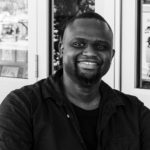
Dr Bryan Mukandi is Australian Research Council DECRA Fellow at the University of Queensland’s School of Languages and Cultures. He is a philosopher who works in Black Studies (Africana philosophy and literature; critical philosophy of race; and critical Indigenous studies) and the Health Humanities (medical ethics; philosophy of medicine and community health). He earned his medical degree at the University of Zimbabwe, and interned at the United Bulawayo Hospitals. The practice of clinical medicine in a resource poor setting led him to a continuing concern with moral luck and the social determinants of health. Dr Mukandi therefore pursued an MA in Public Advocacy from the National University of Ireland, Galway; and then an MA in Political Philosophy from Queen’s University Belfast. Having migrated to Australia he worked in Indigenous health policy and systems research before undertaking a PhD on ‘Black Consciousness’, drawing on African philosophy, the critical philosophy of race, and continental European philosophy. He then took up a three-year appointment as Lecture in Medical Ethics within the University of Queensland’s School of Clinical Medicine. Towards the end of that role, Dr Mukandi was awarded a Discovery Early Career Research Award (DECRA) to support his project, ‘Seeing the Black Child’.
University webpage: https://researchers.uq.edu.au/researcher/2607
Personal website: www.bryanmukandi.com
Twitter: @bryanmukandi

Jan Reynolds is director of scientific communications at the American Physical Therapy Association and is managing editor of Physical Therapy (PTJ). In the early 1990s, she served as managing editor of APTA’s clinical practice magazine and helped merge that publication with the association’s tabloid to create PT—Magazine of Physical Therapy (now PT in Motion). She won a 1994 Clarion Award for Women in Communications for a magazine feature article about an inner-city home health physical therapist. In 1996, she became managing editor of PTJ, working with the late Editor in Chief Jules Rothstein to improve the journal’s peer review system. In the 2000s, she oversaw the migration of PTJ‘s website to the HighWire Press platform, developed podcast features and other online-only content, and most recently has overseen migration of PTJ content to the Oxford University Press platform.
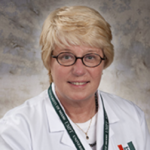
Carol Davis, PT, DPT, EdD, MS, FAPTA is Professor Emerita in the Department of Physical Therapy at the University of Miami Miller School of Medicine and author/editor of numerous manuscripts and books, including: Integrative Therapies in Rehabilitation, Evidence of Efficacy in Therapy, Prevention and Wellness and Patient Practitioner Interaction/An Experiential Manual for Developing the Art of Patient Care. In addition to her doctorate in physical therapy from Massachusetts General Hospital Institute of Health Professions, she has a doctorate in Humanistic Studies from Boston University.
Website Link (Official Bio): http://pt.med.miami.edu/academics/faculty-and-staff/full-time-faculty/carol-m-davis

Dr. Amy Marie Haddad is the Director for the Center for Health Policy & Ethics and the Dr. C.C. and Mabel L. Criss Endowed Chair in the Health Sciences. She received her BSN from Creighton University in 1975, her MSN from the University of Nebraska Medical Center in 1979, and her PhD in education from the University of Nebraska-Lincoln in 1988. She first became involved in education in the health sciences at the College of Saint Mary in the nursing program, then moved on to Creighton in 1984 where she has since taught ethics in the health sciences and led the effort to establish the Master of Science in Health Care Ethics program in 2009. She was selected for the national Carnegie Scholars program of the Carnegie Center for the Advancement of the Scholarship of Teaching in 2001. As part of her Carnegie project, Dr. Haddad evaluated various methods of teaching applied ethics including the use of standardized patients. Teaching and learning in ethics education whether in a face-to-face environment or online continues to be the primary focus of her research.
Website Link (Official Bio): https://spahp.creighton.edu/faculty-directory-profile/45/amy-haddad

Cindy Smalletz, M.S., M.A., is one of the first graduates of the Columbia University Narrative Medicine Master’s program. She lectures on narrative medicine to both students and clinicians, and is the creator, designer, and director of the first online certificate program in Narrative Medicine at Columbia University. She also holds an M.A. in Instructional Design and Technology, and while pursuing her M.S., she worked for the Center for New Media Teaching and Learning at the Columbia University Irving Medical Center where she focused on purposefully merging technology and education for students, faculty, and research grants. By bringing together narrative medicine with education and technology, she plans to change healthcare around the world through better training, communication, self-awareness and action.
http://narrativemedicine.org/
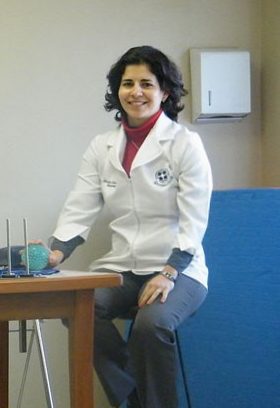
Dr. Doussoulin is physiotherapist and received her Master Science of Human Movement and PhD in Human Movement. She has been a teacher in the Medicine Faculty at Universidad de La Frontera-Chile for twenty years. Professor Doussoulin works as clinical physiotherapist in neurorehabilitation at the Rehabilitation Center in Universidad de La Frontera for ten years. She has conducted research or projects like DIUFRO or FONIS-Chile, and authored or coauthored publications in Spanish and English. She is author of Manual about Constraint induced therapy in Spanish. Dr. Doussoulin has been invited presentations at regional, national, and international conferences. She currently serves as the Editor of the Journal of Physical Therapy in Chile and she is member of Nucleo of Neurorehabilitation at the South of Chile. Her research focuses on evaluation and intervention in neurorehabilitation, like Motor Activity Log-30 and Actions Research Arm and constraint induced therapy movement.
Website Link (Official Bio): http://www.med.ufro.cl/kinesiologia/index.php/nuestra-carrera/docentes/item/19-arlette-patricia-doussoulin-sanhueza

Christina Crosby is an American scholar and writer. She has worked at Wesleyan University since 1982, where she is Professor of English and Feminist, Gender, and Sexuality Studies. Her subfields are Victorian studies and Feminist Studies. She has published The Ends of History: Victorians and the ‘Woman Question’ and essays and reviews in Victorian Studies, PMLA, College English, and elsewhere. Dr. Crosby is most recently the author of A Body, Undone: Living on after Great Pain (NYU Press, March 2016), a memoir exploring what it took to create a truly livable life in the wake of a spinal cord injury that dispossessed her of her body.

John Banja is a Professor in the Department of Rehabilitation Medicine and a medical ethicist at the Center for Ethics at Emory University. He also directs the Section on Ethics for the Atlanta Clinical and Translational Science Institute at Emory. Dr. Banja received a doctorate degree in philosophy from Fordham University in New York and has taught and lectured on topics in medical ethics throughout the United States. He has authored or coauthored over 175 publications and has delivered over 800 invited presentations at regional, national, and international conferences. He currently serves as the Editor of the American Journal of Bioethics-Neuroscience, the leading scholarly journal in the field of neuroethics. Dr. Banja has conducted research or educational projects with numerous federal and private organizations including the NIH, the American College of Surgeons, The Agency for Health Care Research and Quality, The National Institute for Disability and Rehabilitation Research, the American Society for Healthcare Risk Management, and the Georgia Hospital Association. He is a former board member of the Commission for Case Manager Certification as well as the American Society of Cataract and Refractive Surgery. His research interests include topics in neuroethics and ethical dilemmas occurring in clinical and translational research. His most recent book, Medical Errors and Medical Narcissism, was published by Jones and Bartlett Publishers in 2005.

Dr. Smith is the Andrew W. Mellon Faculty Fellow for Nursing and the Humanities and works with the School of Nursing, the Centre for Ethics, the Centre for Human Health and the College of Arts and Sciences to build collaborations between nursing and the liberal arts. She was awarded a Bachelor of Arts (Honors) in English and History and a PhD in History from the University of Wollongong in Australia. Before coming to Emory, Kylie worked in the School of Nursing at the University of Wollongong where she researched mental health nursing history and taught reflective practice. Kylie has also worked in multicultural HIV/AIDS health promotion in Sydney, Australia and studied scriptwriting at the Australian Film Television and Radio School. Kylie’s current research explores the development of psychiatric nursing history in the US, UK and Australia during and after World War II. This research has been facilitated by a fellowship at the University of Pennsylvania and grants from the Rockefeller Foundation and the American Association for the History of Nursing.
Website Link: http://www.nursing.emory.edu/faculty-and-research/directory/profile.html?id=3420

Laura Otis, PhD is a Professor in the Department of English at Emory University. She began her career as a scientist, earning her B.S. in Molecular Biophysics and Biochemistry from Yale in 1983 and her M.A. in Neuroscience from the University of California at San Francisco in 1988. Before receiving her Ph.D. in Comparative Literature from Cornell University in 1991, she worked in labs for eight years. Since 1986, she has been studying and teaching about the ways that scientific and literary thinking coincide and foster each other’s growth. Otis works with British Victorian, Spanish, German, French, and North and South American literature, especially nineteenth-century novels. She is particularly interested in memory, identity formation, and communication technologies and has been a recent guest scholar at the Max Planck Institute for Human Development in Berlin. In addition to her academic books, Otis has written five yet-to-be-published novels. In 2000, she was awarded a MacArthur fellowship for creativity.
Website Link: http://english.emory.edu/home/people/faculty/faculty_pages/otis.html

Ms. Fritz received her Master of Arts degree in Art History from Indiana University and Bachelor of Arts in Art and Archaeology from Washington University in St. Louis. She has been a teacher in the Art Department at Hamilton Southeastern High School in Fishers, Indiana for the past ten years, where she teaches upper level drawing and painting as well as Advanced Placement Art History. Prior to her career in secondary education, she worked in the Education Department at the Indianapolis Museum of Art and served as Curator of Collections for the Fort Wayne Museum of Art, Fort Wayne, Indiana

Professor, Ethics and Health Humanities
Director, Masters Program, Bioethics and Medical Humanities (MABMH)
Morsani College of Medicine
College of Public Health
University of South Florida
Tampa, Florida
Lois LaCivita Nixon has graduate degrees from Rollins College (M.A.T.), Middlebury College/Lincoln College, Oxford (M.Litt.), and the University of South Florida (Ph.D., M.P.H.). Her area of study includes medical ethics and health humanities, women’s issues, aging/end-of-life, and the impact of globalism on health care. Most recently, she co-edited a textbook, Medical Ethics and Humanities (Jones & Bartlett, 2009). In addition she co-edited On Doctoring and Trials, Tribulations, and Celebrations and co-authored Literary Anatomies. Dr. Nixon has published in The Journal of Clinical Ethics, Law, Medicine & Health Care, The Journal of Medical Humanities, Pharos,The Journal of Aging and Identity, and Academic Medicine. Recent articles are entitled “Pyramids and Rhomboids in the Rationalist World of Medicine” and “Emerging Issues in International Health Systems Organization.” For two years, she served as Chair of the Hillsborough County Hospital Authority and served as a member of the Committee on Governance for the American Hospital Association and was active, as well, in the National Association of Public Hospitals. She is a former Peace Corps Volunteer (Togo), a three-time NEH Fellow, a PEW Trust Fellow, and a Fulbright scholar (Jordan).

Barbara Gibson, BMR(PT), MSc, PhD, is a physical therapist and bioethicist whose work investigates how disability is understood and addressed in rehabilitation practice and delivery. Her research examines the intersections of social, cultural, and institutional practices in producing health, inclusion/exclusion, and identity with disabled children and young people. Dr Gibson has examined key areas of health practices and policies including transitions to adulthood, independent living, and understanding relationships between mobility, identity, and social inclusion. Dr. Gibson is an Associate Professor at the University of Toronto where she also holds the Bloorview Children’s Hospital Foundation Chair in Childhood Disability Studies with the Bloorview Research Institute in Canada. She has led three books aimed at transforming rehabilitation practices, Rethinking Rehabilitation Theory and Practice (2015, co-editor), Rehabilitation: A Post-critical Approach (2016) and Manipulating Practices: A Critical Physiotherapy Reader (2018, lead editor). She is a co-founder of the international Critical Physiotherapy Network.
Sue Klappa, PT, PhD
Cindy Dodds, PhD, PT
Sean Halperin, MA
Shilpa Krishnan, PhD, PT
Lisa Kerr Dunn, PhD
Julia Hurtado, PT, DPT, NCS
Robin Fivush, PhD
Gail Teachman, PhD, OT Reg
Annie Robinson, MS
Jess Libow
Editorial Staff | Faculty
Sarah Blanton, PT, DPT, Editor-in-Chief
Eric Holshouser, PT, DPT, MBA, Business Manager
Melissa McCune, PT, DPT, MPH, Managing Editor
Claire Coyne, MA, Senior Copy Editor
Sarah Caston, PT, DPT, Narrative Section Editor
Cindy Dodds, PhD, PT, Faculty Associate Editor
Jessica Cammarata, PT, DPT, NCS, Faculty Assistant Editor
Keenan Whitesides, PT, DPT, Clinical Editorial Associate and Resource Section Editor
Editorial Staff | Student
Priyanka Bhakta, SPT, Senior Digital Graduate Editorial Associate
Web Development
Emory Center for Digital Scholarship (ECDS): Please contact at ecds [at] emory [dot] edu.
Bailey Betik, PhD, Digital Publication Specialist
Anqi Hu, Digital Scholarship Assistant
Shoibolina Kaushik, Digital Scholarship Assistant
Former Editorial Staff and Graduate Students
Kaelyn McAdams, Digital Scholarship Assistant
Paige Weber, Managing Editor
Madison Beasley, SPT, Senior Digital Graduate Editorial Associate
Stefano Campana, SPT, Graduate Editorial Associate
Nela Handac, SPT, Graduate Editorial Associate
Amber Baas, SPT, Graduate Editorial Associate
Jamie Fleshman, Senior Digital Graduate Editorial Associate
Kayla Shipp, PhD, Digital Scholarship Specialist
Joe Fritsch, Graduate Managing Editor
Stephanie Larson, Graduate Managing Editor
Nancy Lehrer, PT, MPT, Clinical Editorial Associate
Emma Anne Goldberg, PT, DPT, MPH, Clinical Editorial Associate
John David Ike, MD, Clinical Editorial Associate
Jenifer Markley, PT, DPT, Faculty Associate Editor
Leigh Partington, PhD, Editorial Associate
Donna Smith, PT, DPT, NCS, GCS, Faculty Assistant Editor
Michael Saunders, PT, DPT, PhD, Clinical Editorial Associate
Elizabeth Lummus, MPH, Digital Scholarship Assistant
Donya Mosleh, MA, Graduate Editorial Assistant
Phillip Kellogg, PT, DPT, Graduate Editorial Assistant
Sarah Smith, PT, DPT, Graduate Editorial Assistant
Anandi Silva Knuppel, PhD, Digital Scholarship Specialist
Erin Hecht, PhD
Aimee Reiss, PT, DPT, NCS, Faculty Managing Editor
Katherine Voorhorst, PT, DPT, Graduate Editorial Associate
Rebecca Crockett, PT, DPT, Graduate Editorial Associate
Emilly Marshall, PT, DPT, Graduate Editorial Associate
Acknowledgements
Special thanks to Emory Center for Digital Scholarship (ECDS) for consultation and technical support – Wayne Morse and Allen Tullos, co-directors, and Sarah Melton, digital projects coordinator, for their invaluable guidance in the planning of JHR and the financial support of the ECDS during the initial stages of online development.
Thank you to the Emory University Division of Physical Therapy for financial support of JHR.
Thank you to the Emory Department of English and Dr. Walter Kalaidjian (Professor, English Department) and the Disability Studies Initiative for initial financial support of JHR.